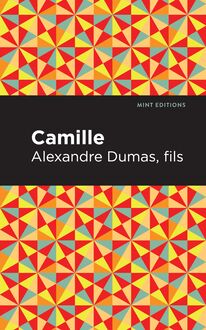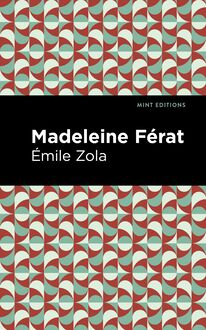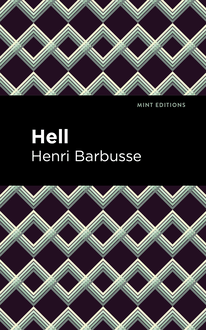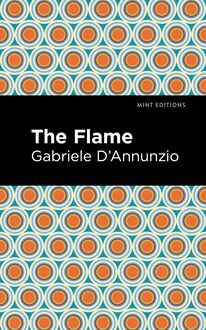-
 Univers
Univers
-
 Ebooks
Ebooks
-
 Livres audio
Livres audio
-
 Presse
Presse
-
 Podcasts
Podcasts
-
 BD
BD
-
 Documents
Documents
-
- Cours
- Révisions
- Ressources pédagogiques
- Sciences de l’éducation
- Manuels scolaires
- Langues
- Travaux de classe
- Annales de BEP
- Etudes supérieures
- Maternelle et primaire
- Fiches de lecture
- Orientation scolaire
- Méthodologie
- Corrigés de devoir
- Annales d’examens et concours
- Annales du bac
- Annales du brevet
- Rapports de stage
La lecture à portée de main

Vous pourrez modifier la taille du texte de cet ouvrage
Découvre YouScribe en t'inscrivant gratuitement
Je m'inscrisDécouvre YouScribe en t'inscrivant gratuitement
Je m'inscrisEn savoir plus
Vous pourrez modifier la taille du texte de cet ouvrage
En savoir plus

Description
Beginning with a visceral description of the society and politics of Paris, The Girl with the Golden Eyes considers the sex life of the upper class by its raw depiction of the underside of Parisian life. Henri de Marsay is a young, rich man who is nearly devoid of morals and virtue. After he meets Paquita Valdes, a mysterious and beautiful woman, he becomes infested with a deviant lust for her. When his plan to seduce her succeeds, Henri and Paquita maintain an intensely sexual relationship. However, when Henri starts to suspect Paquita is involved with another lover, he becomes overwhelmed with rage and jealousy. As he allows this emotion to cloud his judgement and conscience, Henri’s possessiveness plots a heinous act—immoral even by his questionable standards, leading to shocking discoveries and sick twists.
The surprise and awe invoked by Honoré de Balzac’s The Girl with the Golden Eyes ensures a memorable narrative that has won the attention of critics and inspired a 1961 film adaptation. With elements of homosexuality, sexual slavery, incest and violence, The Girl with the Golden Eyes is a lustful tale that remains to be appalling and taboo. With raw and ruthless realism, Honoré de Balzac creates a portrait and reflection of an entire society through the vivid depiction of Paris and the specific amorous vice of the protagonists. While exploring the vices of the Parisian upper class, The Girl with the Golden Eyes also invites reflection on the brutal effects misogyny and ill-intended men have on women, exposing a truth that is still applicable to modern society.
Though The Girl with the Golden Eyes has traditionally been published among a collection, this edition of Honoré de Balzac’s work stands alone in the spotlight it has earned. Featuring a brand new, eye-catching cover design and a modern, readable font, this edition of The Girl with the Golden Eyes is accessible to contemporary audiences and encourages conversation on torrid and taboo affairs.
Sujets
Informations
| Publié par | Mint Editions |
| Date de parution | 01 décembre 2020 |
| Nombre de lectures | 0 |
| EAN13 | 9781513273334 |
| Langue | English |
| Poids de l'ouvrage | 2 Mo |
Informations légales : prix de location à la page 0,0250€. Cette information est donnée uniquement à titre indicatif conformément à la législation en vigueur.
Extrait
The Girl with the Golden Eyes
Honor é de Balzac
The Girl with the Golden Eyes was first published in 1833.
This edition published by Mint Editions 2021.
ISBN 9781513268330 | E-ISBN 9781513273334
Published by Mint Editions®
minteditionbooks.com
Publishing Director: Jennifer Newens
Design & Production: Rachel Lopez Metzger
Translation: Ellen Marriage
Typesetting: Westchester Publishing Services
C ONTENTS Begin Reading
O ne of those sights in which most horror is to be encountered is, surely, the general aspect of the Parisian populace—a people fearful to behold, gaunt, yellow, tawny. Is not Paris a vast field in perpetual turmoil from a storm of interests beneath which are whirled along a crop of human beings, who are, more often than not, reaped by death, only to be born again as pinched as ever, men whose twisted and contorted faces give out at every pore the instinct, the desire, the poisons with which their brains are pregnant; not faces so much as masks; masks of weakness, masks of strength, masks of misery, masks of joy, masks of hypocrisy; all alike worn and stamped with the indelible signs of a panting cupidity? What is it they want? Gold or pleasure? A few observations upon the soul of Paris may explain the causes of its cadaverous physiognomy, which has but two ages—youth and decay: youth, wan and colorless; decay, painted to seem young. In looking at this excavated people, foreigners, who are not prone to reflection, experience at first a movement of disgust towards the capital, that vast workshop of delights, from which, in a short time, they cannot even extricate themselves, and where they stay willingly to be corrupted. A few words will suffice to justify physiologically the almost infernal hue of Parisian faces, for it is not in mere sport that Paris has been called a hell. Take the phrase for truth. There all is smoke and fire, everything gleams, crackles, flames, evaporates, dies out, then lights up again, with shooting sparks, and is consumed. In no other country has life ever been more ardent or acute. The social nature, even in fusion, seems to say after each completed work: “Pass on to another!” just as Nature says herself. Like Nature herself, this social nature is busied with insects and flowers of a day—ephemeral trifles; and so, too, it throws up fire and flame from its eternal crater. Perhaps, before analyzing the causes which lend a special physiognomy to each tribe of this intelligent and mobile nation, the general cause should be pointed out which bleaches and discolors, tints with blue or brown individuals in more or less degree.
By dint of taking interest in everything, the Parisian ends by being interested in nothing. No emotion dominating his face, which friction has rubbed away, it turns gray like the faces of those houses upon which all kinds of dust and smoke have blown. In effect, the Parisian, with his indifference on the day for what the morrow will bring forth, lives like a child, whatever may be his age. He grumbles at everything, consoles himself for everything, jests at everything, forgets, desires, and tastes everything, seizes all with passion, quits all with indifference—his kings, his conquests, his glory, his idols of bronze or glass—as he throws away his stockings, his hats, and his fortune. In Paris no sentiment can withstand the drift of things, and their current compels a struggle in which the passions are relaxed: there love is a desire, and hatred a whim; there’s no true kinsman but the thousand-franc note, no better friend than the pawnbroker. This universal toleration bears its fruits, and in the salon, as in the street, there is no one de trop , there is no one absolutely useful, or absolutely harmful—knaves or fools, men of wit or integrity. There everything is tolerated: the government and the guillotine, religion and the cholera. You are always acceptable to this world, you will never be missed by it. What, then, is the dominating impulse in this country without morals, without faith, without any sentiment, wherein, however, every sentiment, belief, and moral has its origin and end? It is gold and pleasure. Take those two words for a lantern, and explore that great stucco cage, that hive with its black gutters, and follow the windings of that thought which agitates, sustains, and occupies it! Consider! And, in the first place, examine the world which possesses nothing.
The artisan, the man of the proletariat, who uses his hands, his tongue, his back, his right arm, his five fingers, to live—well, this very man, who should be the first to economize his vital principle, outruns his strength, yokes his wife to some machine, wears out his child, and ties him to the wheel. The manufacturer—or I know not what secondary thread which sets in motion all these folk who with their foul hands mould and gild porcelain, sew coats and dresses, beat out iron, turn wood and steel, weave hemp, festoon crystal, imitate flowers, work woolen things, break in horses, dress harness, carve in copper, paint carriages, blow glass, corrode the diamond, polish metals, turn marble into leaves, labor on pebbles, deck out thought, tinge, bleach, or blacken everything—well, this middleman has come to that world of sweat and good-will, of study and patience, with promises of lavish wages, either in the name of the town’s caprices or with the voice of the monster dubbed speculation. Thus, these quadrumanes set themselves to watch, work, and suffer, to fast, sweat, and bestir them. Then, careless of the future, greedy of pleasure, counting on their right arm as the painter on his palette, lords for one day, they throw their money on Mondays to the cabarets which gird the town like a belt of mud, haunts of the most shameless of the daughters of Venus, in which the periodical money of this people, as ferocious in their pleasures as they are calm at work, is squandered as it had been at play. For five days, then, there is no repose for this laborious portion of Paris! It is given up to actions which make it warped and rough, lean and pale, gush forth with a thousand fits of creative energy. And then its pleasure, its repose, are an exhausting debauch, swarthy and black with blows, white with intoxication, or yellow with indigestion. It lasts but two days, but it steals to-morrow’s bread, the week’s soup, the wife’s dress, the child’s wretched rags. Men, born doubtless to be beautiful—for all creatures have a relative beauty—are enrolled from their childhood beneath the yoke of force, beneath the rule of the hammer, the chisel, the loom, and have been promptly vulcanized. Is not Vulcan, with his hideousness and his strength, the emblem of this strong and hideous nation—sublime in its mechanical intelligence, patient in its season, and once in a century terrible, inflammable as gunpowder, and ripe with brandy for the madness of revolution, with wits enough, in fine, to take fire at a captious word, which signifies to it always: Gold and Pleasure! If we comprise in it all those who hold out their hands for an alms, for lawful wages, or the five francs that are granted to every kind of Parisian prostitution, in short, for all the money well or ill earned, this people numbers three hundred thousand individuals. Were it not for the cabarets , would not the Government be overturned every Tuesday? Happily, by Tuesday, this people is glutted, sleeps off its pleasure, is penniless, and returns to its labor, to dry bread, stimulated by a need of material procreation, which has become a habit to it. None the less, this people has its phenomenal virtues, its complete men, unknown Napoleons, who are the type of its strength carried to its highest expression, and sum up its social capacity in an existence wherein thought and movement combine less to bring joy into it than to neutralize the action of sorrow.
Chance has made an artisan economical, chance has favored him with forethought, he has been able to look forward, has met with a wife and found himself a father, and, after some years of hard privation, he embarks in some little draper’s business, hires a shop. If neither sickness nor vice blocks his way—if he has prospered—there is the sketch of this normal life.
And, in the first place, hail to that king of Parisian activity, to whom time and space give way. Yes, hail to that being, composed of saltpetre and gas, who makes children for France during his laborious nights, and in the day multiplies his personality for the service, glory, and pleasure of his fellow-citizens. This man solves the problem of sufficing at once to his amiable wife, to his hearth, to the Constitutionnel , to his office, to the National Guard, to the opera, and to God; but, only in order that the Constitutionnel , his office, the National Guard, the opera, his wife, and God may be changed into coin. In fine, hail to an irreproachable pluralist. Up every day at five o’clock, he traverses like a bird the space which separates his dwelling from the Rue Montmartre. Let it blow or thunder, rain or snow, he is at the Constitutionnel , and waits there for the load of newspapers which he has undertaken to distribute. He receives this political bread with eagerness, takes it, bears it away. At nine o’clock he is in the bosom of his family, flings a jest to his wife, snatches a loud kiss from her, gulps down a cup of coffee, or scolds his children. At a quarter to ten he puts in an appearance at the Mairie . There, stuck upon a stool, like a parrot on its perch, warmed by Paris town, he registers until four o’clock, with never a tear or a smile, the deaths and births of an entire district. The sorrow, the happiness, of the parish flow beneath his pen—as the essence of the Constitutionnel traveled before upon his shoulders. Nothing weighs upon him! He goes always straight before him, takes his patriotism ready made from the newspaper, contradicts no one, shouts or applauds with the world, and lives like
Attention
En entrant sur cette page, vous certifiez :
- 1. avoir atteint l'âge légal de majorité de votre pays de résidence.
- 2. avoir pris connaissance du caractère érotique de ce document.
- 3. vous engager à ne pas diffuser le contenu de ce document.
- 4. consulter ce document à titre purement personnel en n'impliquant aucune société ou organisme d'État.
- 5. vous engager à mettre en oeuvre tous les moyens existants à ce jour pour empêcher n'importe quel mineur d'accéder à ce document.
- 6. déclarer n'être choqué(e) par aucun type de sexualité.
YouScribe ne pourra pas être tenu responsable en cas de non-respect des points précédemment énumérés. Bonne lecture !
-
 Univers
Univers
-
 Ebooks
Ebooks
-
 Livres audio
Livres audio
-
 Presse
Presse
-
 Podcasts
Podcasts
-
 BD
BD
-
 Documents
Documents
-
Jeunesse
-
Littérature
-
Ressources professionnelles
-
Santé et bien-être
-
Savoirs
-
Education
-
Loisirs et hobbies
-
Art, musique et cinéma
-
Actualité et débat de société
-
Jeunesse
-
Littérature
-
Ressources professionnelles
-
Santé et bien-être
-
Savoirs
-
Education
-
Loisirs et hobbies
-
Art, musique et cinéma
-
Actualité et débat de société
-
Actualités
-
Lifestyle
-
Presse jeunesse
-
Presse professionnelle
-
Pratique
-
Presse sportive
-
Presse internationale
-
Culture & Médias
-
Action et Aventures
-
Science-fiction et Fantasy
-
Société
-
Jeunesse
-
Littérature
-
Ressources professionnelles
-
Santé et bien-être
-
Savoirs
-
Education
-
Loisirs et hobbies
-
Art, musique et cinéma
-
Actualité et débat de société
- Cours
- Révisions
- Ressources pédagogiques
- Sciences de l’éducation
- Manuels scolaires
- Langues
- Travaux de classe
- Annales de BEP
- Etudes supérieures
- Maternelle et primaire
- Fiches de lecture
- Orientation scolaire
- Méthodologie
- Corrigés de devoir
- Annales d’examens et concours
- Annales du bac
- Annales du brevet
- Rapports de stage

















